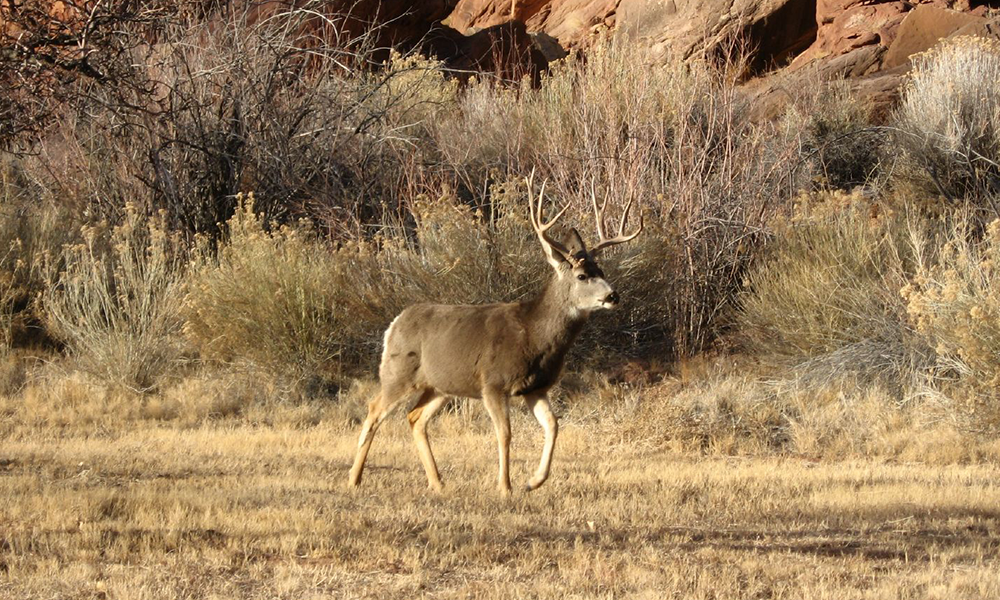
The Utah Division of Wildlife Resources (DWR) is proposing a 9,175 cut to the number of general season buck permits issued in 2020 in 19 hunting units throughout the state. The proposal would also decrease the number of doe permits by 1,025.
Officials cite as justification for the decision a declining deer population brought on by drought, harsh winters, and fires over the last several years. Though the population hit a 10-year peak in 2016, biologists believe cutting the number of buck permits is necessary to bring the doe-to-buck ratio back in line.
“As we saw our populations grow there in 2015 and 2016, we jumped above what the management objective was,” Covy Jones, DWR’s big game coordinator, said in a video presentation. “And as we’ve seen those populations fall off, especially the last year, we’re back down into that range we’re managing for.”
Jones explained that the DWR tries to manage for 15 to 20 bucks for every 100 does, and the ratio dropped back into that range in 2019.
SEE ALSO: NSSF: The COVID-19-Related Changes States Are Making to Hunting Season
Jones also noted that the agency is concerned about the number of fawns being born each year. He said a healthy ratio is 60 fawns for every 100 does, but in the last several years the number has dropped below that benchmark.
“General season units are highly dependent on fawn production,” Jones said.
Nineteen units will see a decrease in the number of buck permits available next year, while 10 units will see no change. The proposal drops the total number of permits available from 89,000 in 2019 to 80,725 in 2020.
The state recorded a little more than 321,000 deer last year, a 51,000 drop from the previous year.
SEE ALSO: Trump Admin Taps Former Safari Club Lawyer for Fish and Wildlife Post
John Bair, vice president of the Utah-based conservation group Sportsmen for Fish and Wildlife, told Deseret News that his organization supports the proposal.
“Overall nobody really likes to see (hunting) opportunities have to be cut,” he said. “But the deer hunters in the state understand it and I think they will be largely in support knowing that if we do everything we can, hopefully in a couple years down the road we can put those tags back and get people back out on the mountain.”
“I think they’re doing a pretty good job of weighing everything out,” he continued. “It’s not an easy job. It’s a thankless job.”
The DWR opened an online comment period on March 27 and is seeking public input before each of the state’s five regions votes. Members of the Utah Wildlife Board will consider their views before casting a deciding vote at the end of April, according to Deseret news.
Jones urged hunters to make their opinion heard and get involved in the process.
“The more you get involved the more say you have in what happens,” he said.

